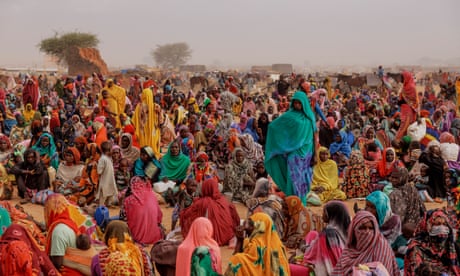The International Monetary Fund (IMF) has downgraded Nigeria's economic growth projections for 2024 to 3.0 per cent from 3.1 per cent in its October forecast.
It disclosed this in its 'World Economic Outlook Update, January 2024.' In a table, the IMF estimated that Nigeria's economy grew by 2.8 per cent a slight decline from the 2.9 per cent it forecasted in October.
The international lender expects Nigeria's economy to grow by a percentage point to 3.1 per cent in 2025. Its 2024 projection is a lot less than the 3.76 per cent the country's government expects in 2024.
In its October update, the IMF stated that Nigeria's slow growth would be because of weaker oil and gas production.
At the time, it said, "Growth in Nigeria is projected to decline from 3.3 per cent in 2022 to 2.9 per cent in 2023 and 3.1 per cent in 2024, with negative effects of high inflation on consumption taking hold.
"The forecast for 2023 is revised downward by 0.3 percentage point, reflecting weaker oil and gas production than expected, partially as a result of maintenance work."
In the third quarter of 2023, Nigeria's GDP grew by 2.54 per cent year-on-year in real terms according to the National Bureau of Statistics.
In its 2024 prediction for sub-Saharan Africa, the IMF expects the region's economy to grow by 3.8 per cent.
It said, "In sub-Saharan Africa, growth is projected to rise from an estimated 3.3 per cent in 2023 to 3.8 per cent in 2024 and 4.1 per cent in 2025, as the negative effects of earlier weather shocks subside, and supply issues gradually improve.
"The downward revision for 2024 of 0.2 percentage point from October 2023 mainly reflects a weaker projection for South Africa on account of increasing logistical constraints, including those in the transportation sector, on economic activity."
Overall global economic growth is projected at 3.1 per cent in 2024 and 3.2 per cent in 2025. 2024's forecast is 0.2 percentage points higher than what the Washington-based lender projected in its October 2023 World Economic Outlook.
It stated that this expected growth is due to expected resilience in the United States and several large emerging markets and developing economies, as well as fiscal support in China.
It added, "The forecast for 2024-25 is, however, below the historical (2000-19) average of 3.8 per cent, with elevated central bank policy rates to fight inflation, a withdrawal of fiscal support amid high debt weighing on economic activity, and low underlying productivity growth.
"Inflation is falling faster than expected in most regions, amid unwinding supply-side issues and restrictive monetary policy."
Commenting on economic growth recently, the Central Bank of Nigeria governor, Olayemi Cardoso, said, "The projections for the nation's economy paint an optimistic trajectory as the Federal Government of Nigeria anticipates real GDP growth of 3.76 per cent in 2024, slightly surpassing the estimated 3.75 per cent for 2023."
He stated that the government's optimism is being driven by the implementation of key government reforms. He said the factors contributing to the positive outlook include the expectation of improved crude oil prices and production, and the anticipated moderation in pump prices of Premium Motor Spirit, among others.
The Nigerian Economic Summit Group expects the economy to grow by 3.50 per cent in 2024. According to it, various reform programmes initiated by the government are expected to trigger an uptick in economic growth as strains on investment are addressed, and low productivity in critical sectors is resolved.
Inflation is also expected to fall in 2024 even though it is currently at 28.92 per cent. The CBN expects an inflation rate of 21.4 per cent and the NESG predicts it will slow to 24.5 per cent.








